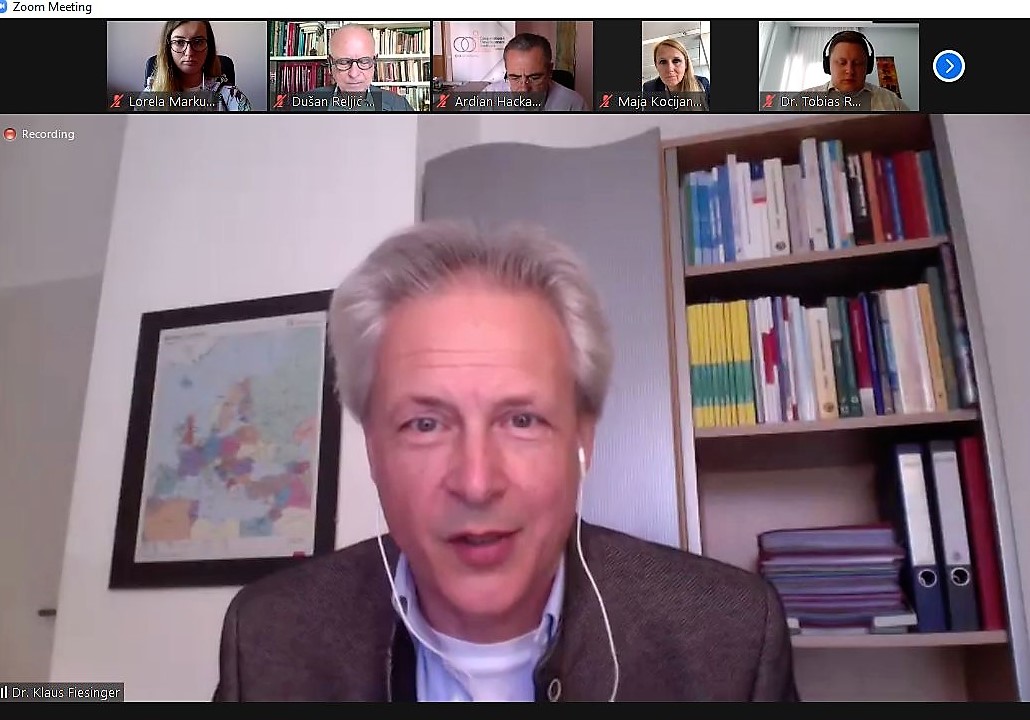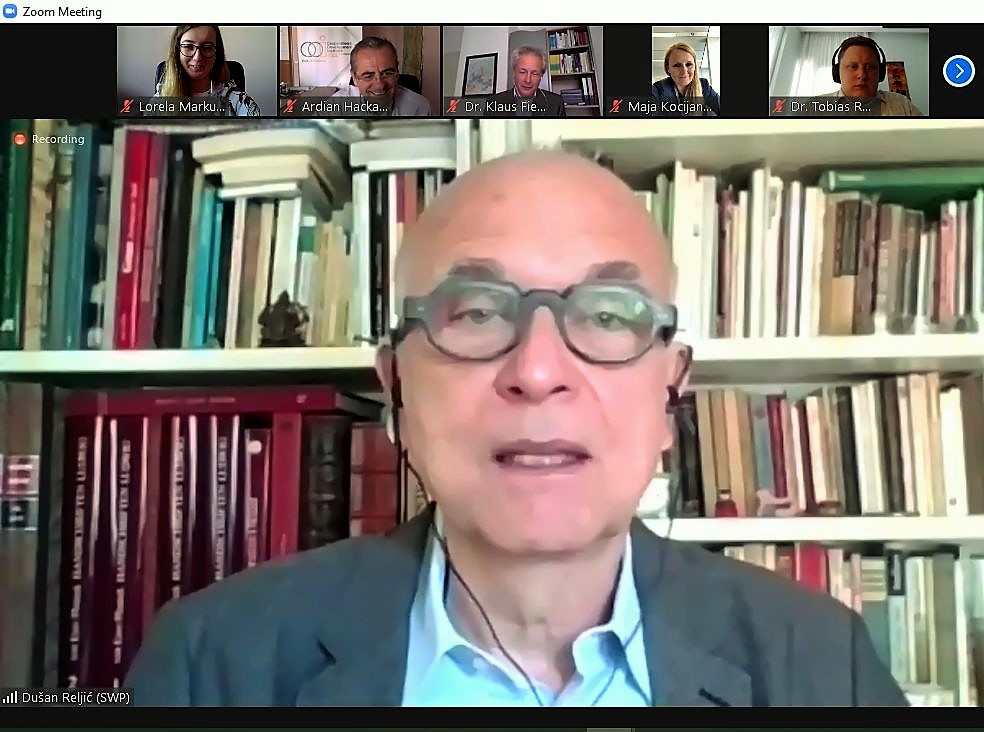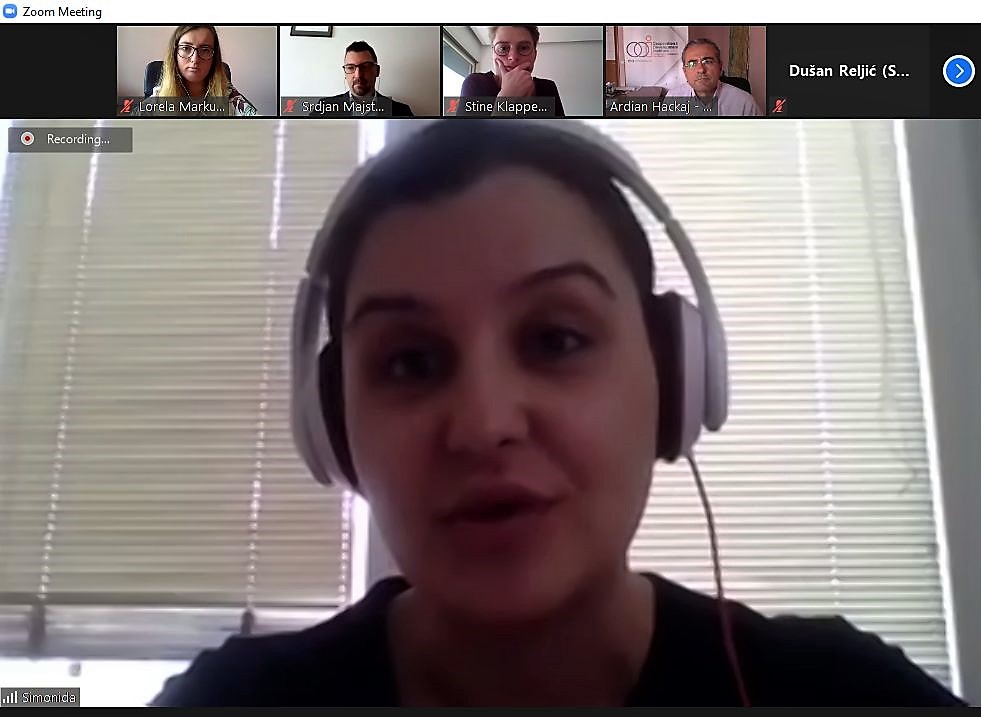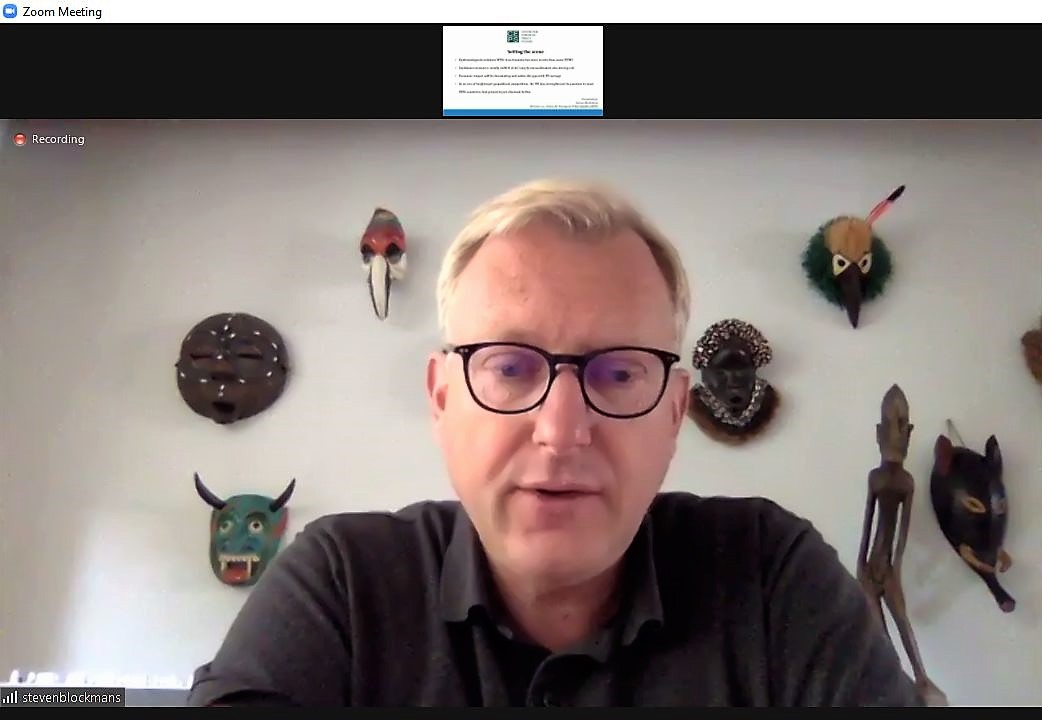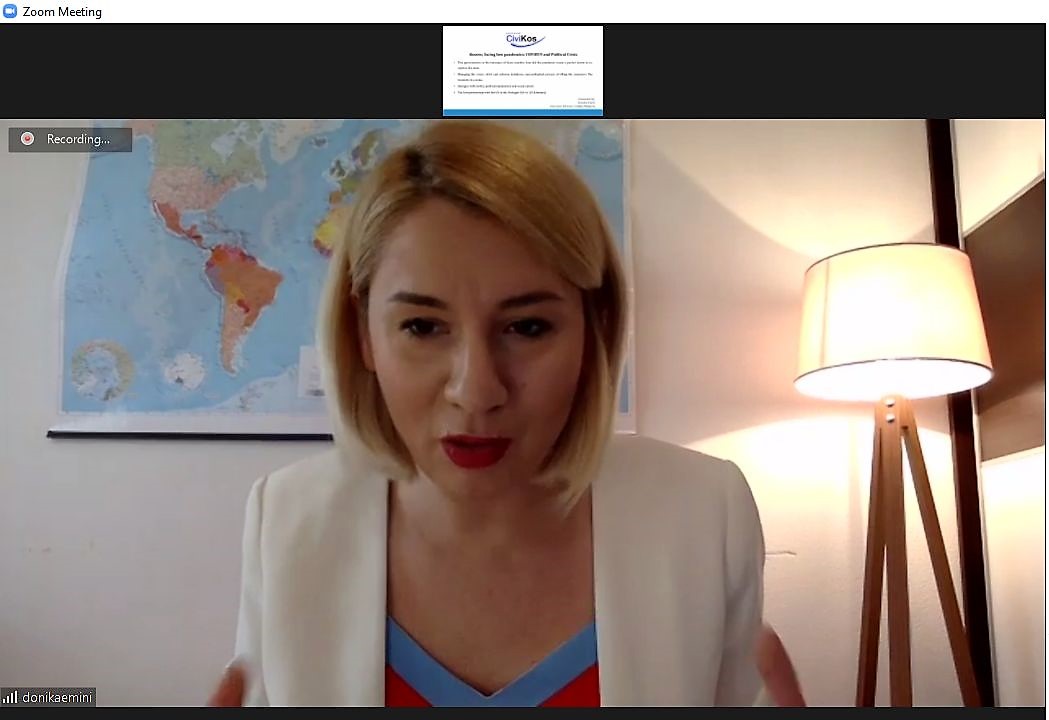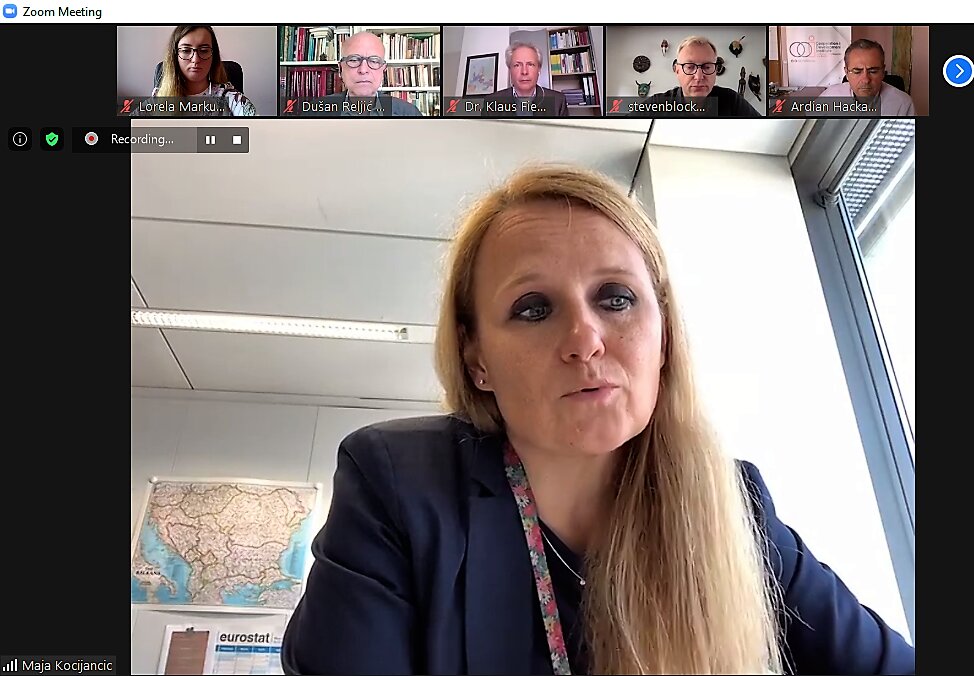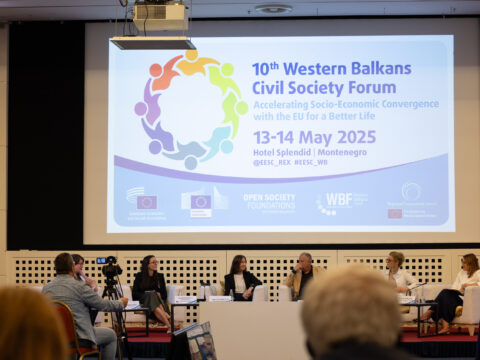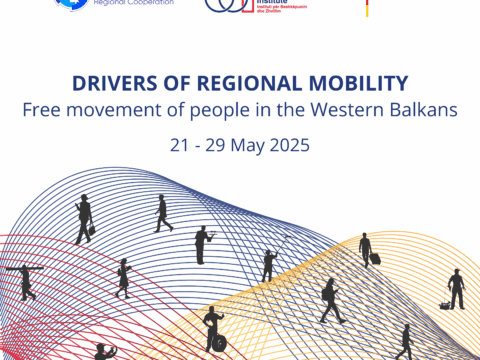On 12th of June, 2020, Cooperation and Development Institute (CDI) in partnership with Hanns Seidel Stiftung organized the online seminar “COVID-19 AND SEE6 REFORMS: how COVID-19 pandemic has tested the resilience of SEE6 institutions and the progress of reforms.”
The aim of this event was to discuss the impact of COVID-19 pandemic on the resilience of SEE6 institutions, the current Enlargement dynamics in SEE6 and the structural weaknesses from both EU and SEE6. The event came at a time when the focus has shifted almost entirely to the pandemic, halting the processes of crucial reforms and advancement towards EU integration.
The online seminar began with the welcoming remarks of the moderator Mr. Dušan Reljić, Head of Office at the Stiftung Wissenschaft und Politik (SWP) and Mr. Klaus Fiesinger, Regional Director for Southeast Europe of Hanns-Seidel-Foundation who highlighted the importance to host this event in such uncertain times caused by a global pandemic.
Mr. Steven Blockmans, Director ad interim at the Centre for European Policy Studies (CEPS) set the scene for the general and common features in all SEE6 countries of the region since the beginning of the pandemic, based also on the Southeast Europe Covid-19 Bulletin Series. Mr. Blockmans added that the lockdown measures in most of SEE6 can be considered as “swift, strict and largely uncoordinated”. Regarding the economic consequences, Mr. Blockmans explained that the EU support will be of critical importance, especially in the aftermath of the pandemic.
Mrs. Maja Kocijančič, Member of Cabinet & Communication Advisor to Olivér Várhelyi, Commissioner for Neighbourhood and Enlargement, shared the perspective from within the EU Commission. Starting on a positive note, she emphasized that the approach of the new Commission towards the region has changed for better. She also highlighted the positive elements of the new enlargement methodology before coming to the specifics of the Commission’s initiatives to support the SEE6 during the pandemic. Mrs. Kocijančič brought into focus the leading role of EU in the region, by undertaking bold initiatives to handle the emergencies but also stretching in the future by proposing an increase of support in the Multiannual financial framework (MFF7).
The panel kicked off with Mr. Ardian Hackaj, Research Director, Cooperation and Development Institute (CDI), who explained country specifics by introducing the obstacles of the pandemic to the work of the institutions in Albania. As he explained, the further implementation of the Justice Reform was halted, extending the vacancies in key institutions of the Judicial System. Also, the much expected electoral reform turned out to be a “window dressing” agreement rather than a real reform. Mr. Hackaj added that in all these important processes for the country, the role of the Civil Society was sidestepped.
Furthermore, Mrs. Simonida Kacarska, Director of the European Policy Institute in Skopje (EPI) focused mostly on the current challenges that North Macedonia was going through such as a technical government in place since early January and a dismissed parliament. As a result of this occurrence, glitches in the work of the executive were noted. Mrs. Kacarska explained that public attention is focused on the upcoming elections resulting in further internal political (party) and ethnic polarization.
Likewise, Mrs. Donika Emini, Executive Director of the Civikos Platform in Kosovo introduced the general concerns in Kosovo about the forced change of the recently-elected government in a time of a global health emergency. According to her, it seems that old political elites took advantage of the situation, leaving Kosovo in a situation with a strong President and a weaker prime minister. In her intervention, Mrs. Emini also highlighted the growing partnership with the USA, which is marginalizing the role of the EU in the country and in the dialogue with Serbia.
The panel was concluded by Mr. Srđan Majstorović, Chairman of the Governing Board of the European Policy Centre (CEP), who explained that the pandemic clarified the picture of the authoritarian regime in Serbia, increasing division among the citizens. Mr. Majstorović added that it is very worrying that the judiciary remains tightly under the control of the executive branch which itself is under the President’s control. He also expressed his concerns about further deterioration of the democratic institutions and procedures and lack of enthusiasm for the implementation of the rule of law.
To consult the agenda of the event, please click here.
A summary video with some key messages from the online seminar can be found here.
This event was followed by a report that can be found here.




